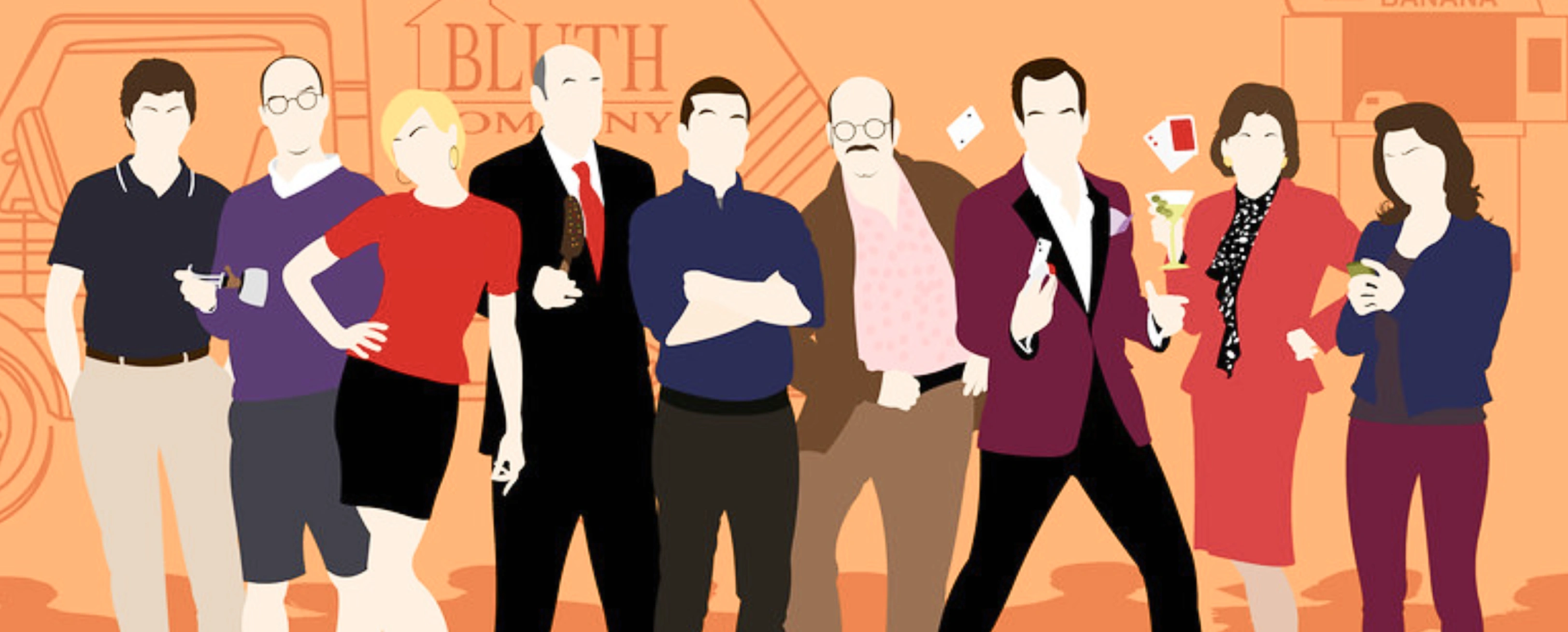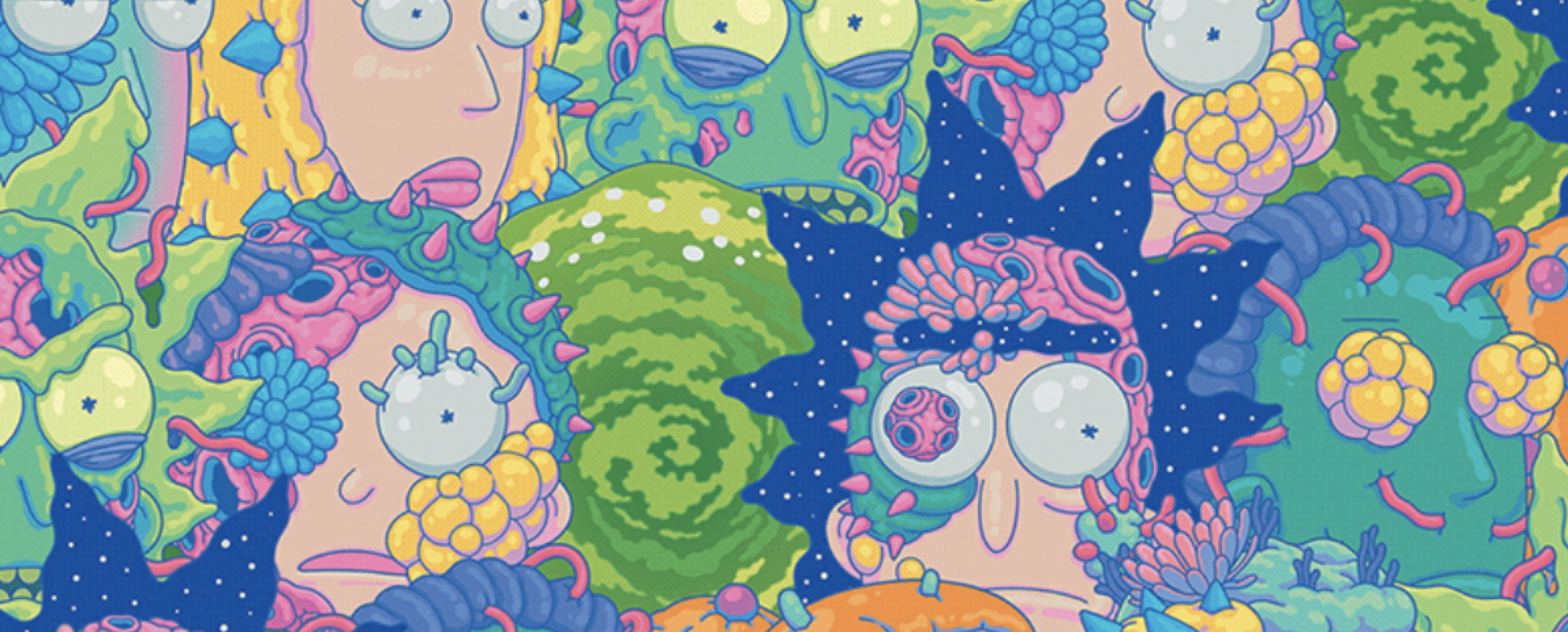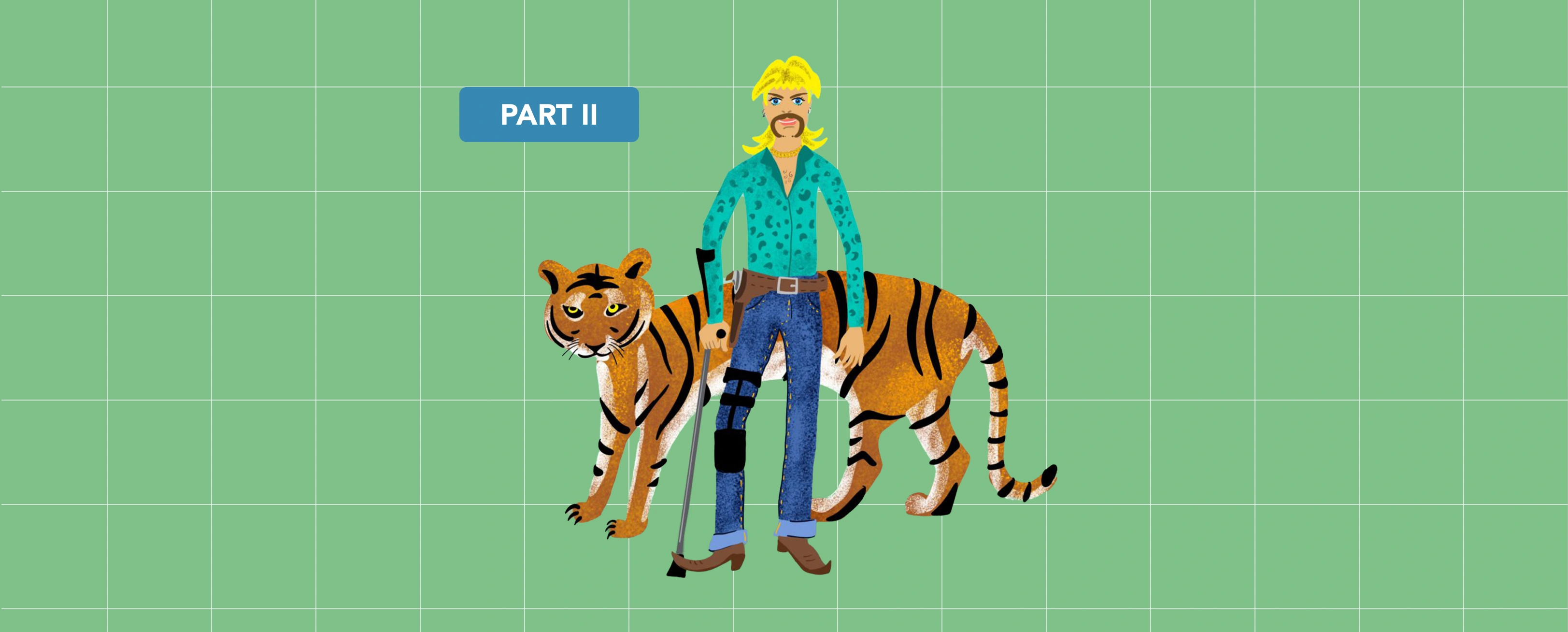If you’re one of the many who’s seen Squid Game, there are lots of reasons to love it: the trippy art direction, the psychological dystopia of the games, and the mysterious plotlines are just a few. But the characters themselves—their story arcs and interpersonal drama—are what took Squid Game from merely an intriguing premise to an immersive and memorable work.
We'll examine their personality types using the Enneagram here, highlighting and analyzing the cues we think are most important in identifying their types. The Enneagram type that we’ve assigned to Seong Gi-hun, Cho Sang-woo, Kang Sae-byeok, Jang Deok-su, Oh Il-nam, Ali Abdul, Han Mi-nyeo, and Ji-Yeong is our best guess for each, given our observation of their speech, body language, choices, and more. We’ll explain which type we think they are and why, using examples when relevant.
Spoilers for season one of Squid Game ahead. Note that type descriptions below come from Blueprint, our Enneagram app .
What Enneagram type is Seong Gi-hung
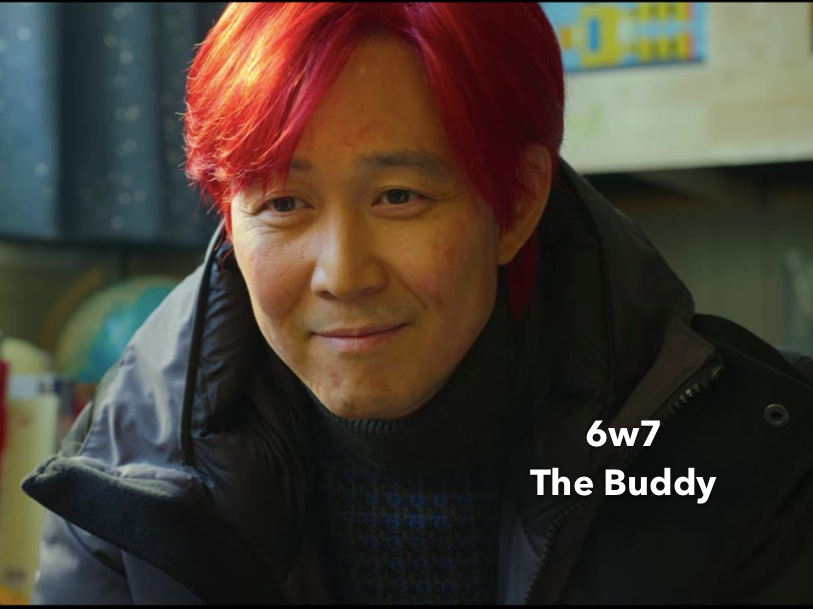
Our best guess for Gi-Hun is a Six with a Seven wing (the Buddy): the Buddy is loyal, playful, affable, responsible, monitoring, cautious, ingratiating, suspicious, and defensive. They are lighthearted community-builders who unite others, but can be panicky and complaining.
Gi-hun starts out in episode 1 as a deadbeat dad, an unappreciative son, and a gambler. He’s portrayed as a buffoon who’s both down on his luck but also not taking responsibility for his role in his own misfortunes. We get the sense that he’s optimistic to a fault and overconfident in his own ability to pull himself out of the messes he’s made, yet deeply anxious about his inability to support his family and himself.
This vibe of “happy-go-lucky on the outside yet fighting existential dread on the inside” is characteristic of many average to lower-health Buddies. Although all Enneagram types can crack jokes, Buddies are emblematic for doing so; they use humor to diffuse tense situations or jab at others from the safety of “it’s just a joke!” We see Gi-hun do this often in the early episodes. His player photo ID exemplifies this mindset, too: he comes off as the jester, sporting an inappropriately wide smile from within a dystopian nightmare.
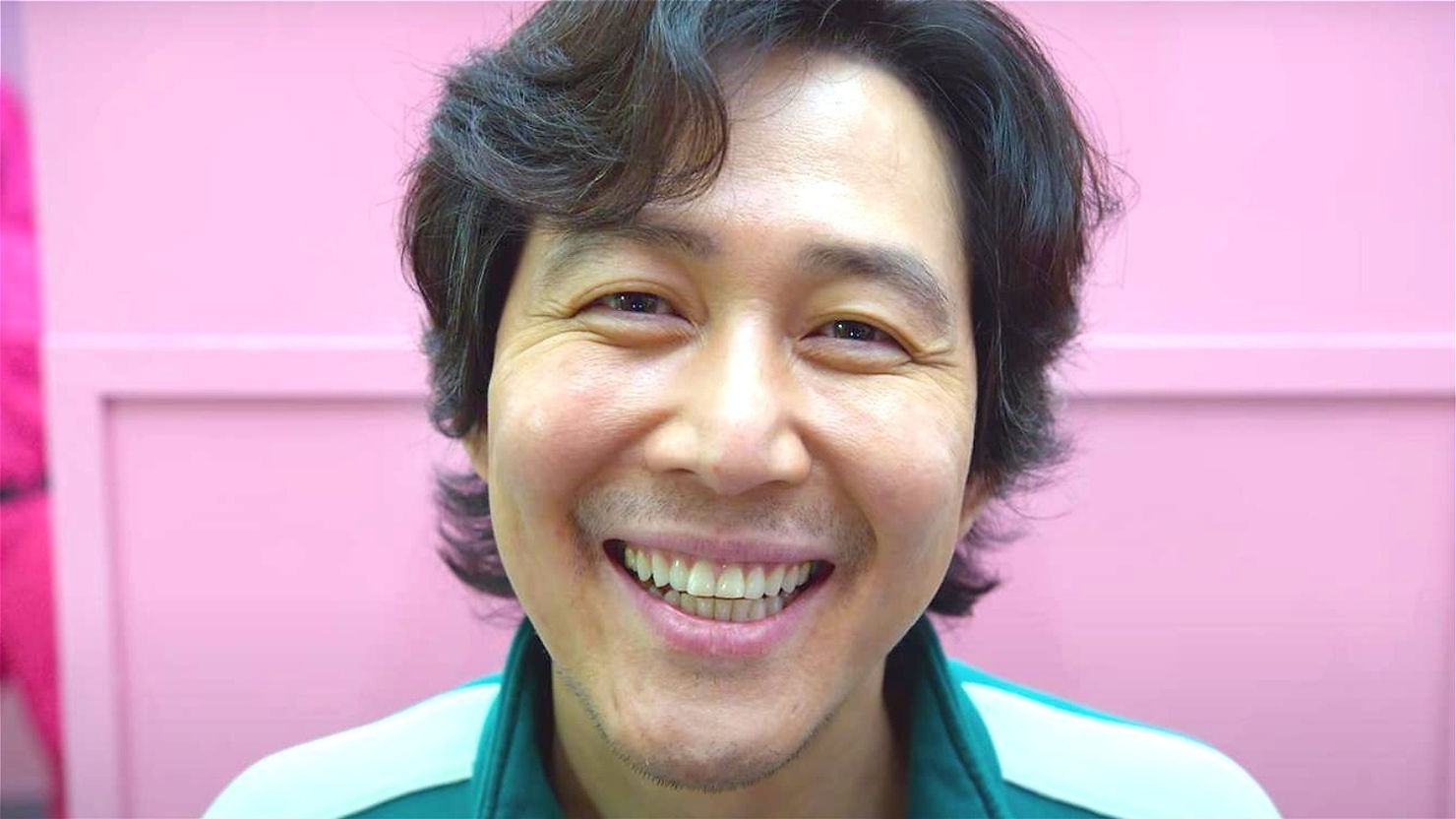
His character follows a redemption arc throughout the series as he transitions from a victim of his own poor choices into a champion for humanity and the underdog. Because they struggle with insecurity, Sixes know how it feels to be lost and unsure of themselves and are great at providing safety and reassurance to others. They are community-minded and make excellent team members, looking for safety in numbers.
Gi-hun is one of the first players to suggest an alliance within the game, showing both the team-orientation and loyalty that Sixes value. For example, he reaches out to include Sae-byeok despite their earlier dispute over her pickpocketing him. Sixes tend to want to know where they stand with others and will resolve conflicts to keep their friends close and their enemies closer.
Gi-hun’s loyalty and willingness to stand up for who he believes is the underdog keeps him alongside Il-Nam, which virtually assures his success in two of the games (Tug-O-War and Marbles), despite the old man actually masterminding the entire premise of Squid Game. It also becomes the running theme of the series: Gi-hun represents a positive view of humanity and human life, while Il-Nam represents a misanthropic view of both.
By the time Gi-hun emerges as the winner of the games, he’s so disgusted by the loss of human life that contributed to his riches that he barely touches his bank account. His first large withdrawal of funds is to support Sae-byeok’s brother and Sang-woo’s mother, both acts of loyalty that he pledged to the players on their deathbeds. These virtues of compassion, support, and loyalty are present in healthier Sixes.
What Enneagram type is Cho Sang-woo?
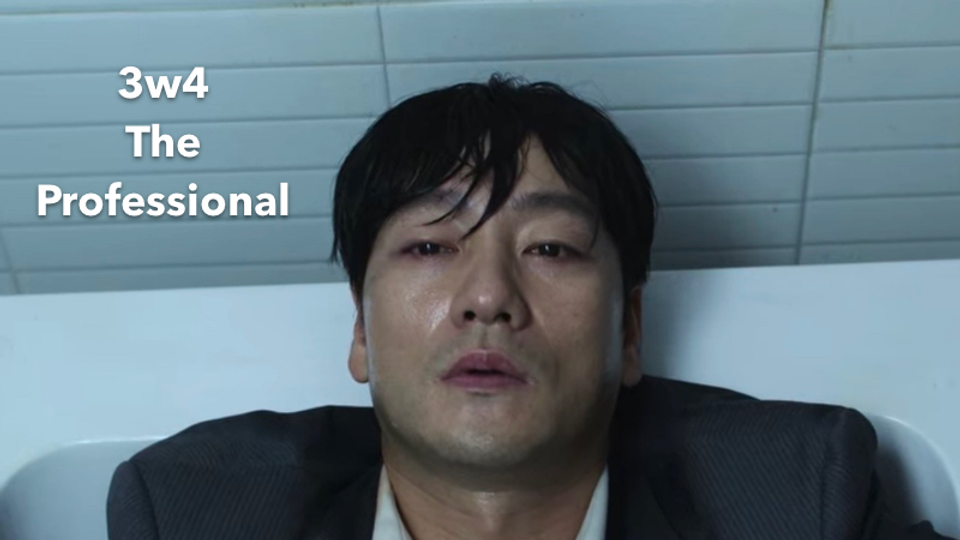
Our best guess for Sang-woo is a low health Three with a Four wing (the Professional): the Professional is success-oriented, efficient, suave, diplomatic, persistent, competitive, impersonal, dismissive, and arrogant. They are industrious and high-achieving, but can be pompous and deceitful.
One of the caricatures of a low-health Three is the person who’s constantly bragging about their achievements. We see this right away with Sang-woo, as we’re reminded that he’s a successful businessman who graduated top in his class from Seoul National University. It’s actually Gi-hun who tells people about Sang-woo’s achievements most often, which reflects an Enneagram dynamic that’s quite common: the Six who plays the support role and talks up their type Three friend. Because Threes can confuse their self-worth with their success, a Three who’s in serious debt with a string of investment failures is susceptible to depression and even self-harm, as we see with Sang-woo in the scene where he’s drinking in a bathtub and appears to be contemplating suicide.
Low-health Threes want to win at any cost and may be drawn into unethical and self-serving behaviors. This toxic competitiveness is a theme that follows Sang-woo throughout the show:
He had one of the largest debts in the game, owing ₩6 billion for stealing client funds and making bad investments
He figures out the Sugar Honeycombs game before the players select their shapes, yet allows his longtime friend Gi-hun to choose the most difficult shape—the umbrella—while holding his tongue
He cons Ali out of his marbles to survive that round, pushes a player through the glass steps when he’s taking too much time, and slits Sae-byeok’s throat to eliminate her as competition
Sang-woo is slightly redeemed in the end, when after trying and failing to kill Gi-hun in the Squid Game, he chooses to kill himself to let his friend succeed. Winning at any cost was not worth it in the end; Gi-hun’s more collaborative and humane approach was more effective.
What Enneagram type is Kang Sae-byeok?
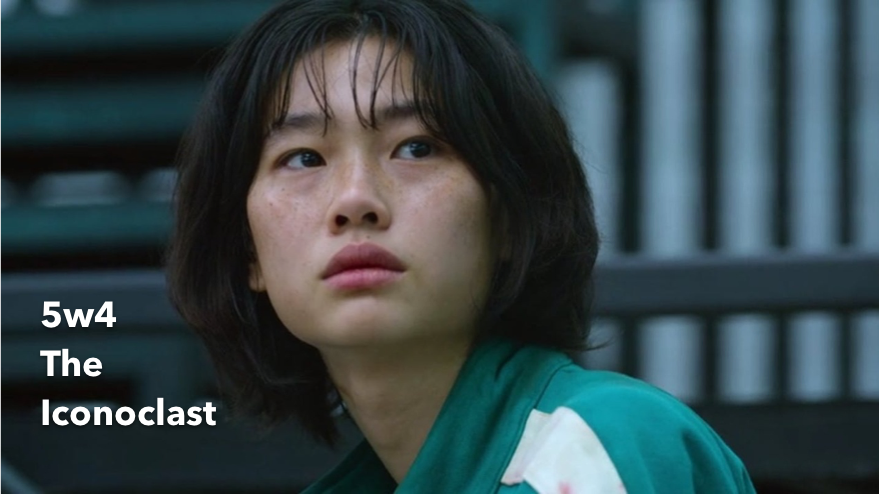
Our best guess for Sae-byeok is a Five with a Four wing (the Iconoclast): the Iconoclast is inventive, cerebral, intellectually-intuitive, unassuming, abstract, eccentric, disconnected, subversive, and reclusive. They are contemplative and astute explorers, but can be antagonistic and nihilistic.
We were torn between the Iconoclast and a Six with a Five wing (the Defender), but ultimately went with Five because of how self-isolated Sae-byeok is. She lacks the team orientation that is core to many Sixes.
Sae-byeok is a lone wolf who’s determined to win the money through her own resourcefulness and intellect. She’s a trained pickpocket who’s suspicious of others’ intents, holding back on engaging with them or revealing anything about herself until she’s willing. For example, she resists being on a team until it’s clear that she’ll likely die without others’ protection, she sneaks into the ceiling ducts by herself to find evidence about the next game (and resists sharing it with anyone until Sang-woo demands to know), she hides that she’s been mortally wounded, and she doesn’t reveal that she’s supporting a younger brother until she’s on her deathbed.
Like most Fives of average health, Sae-byeok is reticent, unemotional, and logical. The Five’s core fear of lacking resources or preparation seems to drive her: her reason for entering the games is to aggregate funds to re-attempt to save her mother from North Korea. Sae-byeok seems to want to minimize social entanglements to focus on winning the money, but in the end, it’s those relationships that provide meaning for her (and help her brother, via Gi-Hun). She finally opens up and shares her name and story with Ji-yeong, who decides to sacrifice herself to let Sae-byeok live.
What Enneagram type is Jang Deok-su
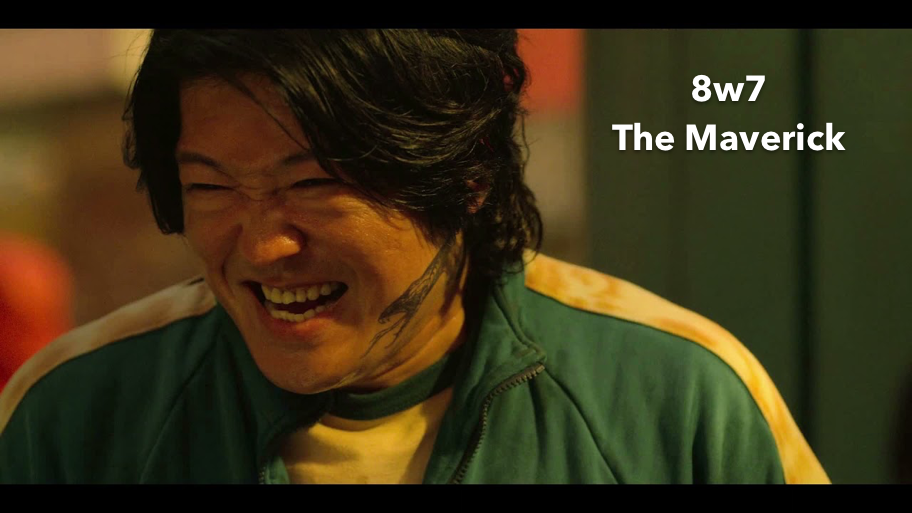
Our best guess for Deok-su is a low-health Eight with a Seven wing (the Maverick): the Maverick is enterprising, bold, dynamic, assertive, straight-talking, defiant, over-reactive, forceful, and contentious. They are independent non-conformists who blaze trails, but can be overly combative and explosive.
Low-health Eights often come off like stereotypical gangsters: they’re larger-than-life bullies who are disgusted by weakness and boss around others to get their way. Deok-su fits this description closely, as he’s literally a gangster whose ill-informed power grab against his boss backfired and landed him out of options and in the games. Once inside, he mobilizes a squad of underlings to protect him and carry out his orders.
Eights are natural leaders, even in low health, and their tendency to take charge and assign others roles works well in chaotic situations where others aren’t willing to step up. They often have an imposing presence, which we see in Deok-su through his directness, posture, neck and face tattoo, and muscular build.
Deok-su is unfiltered, aggressive, antisocial, and combative. Whereas Sang-woo’s drive to win stems more from a desire to redeem his image, Deok-su’s is more primal: money equals power, and power equals survival. He’s not afraid to make enemies of everyone in the games to protect himself, whether that’s killing players between games, betraying Mi-nyeo, using the doctor to cheat, or refusing to move on the Glass Stepping Stones.
Eights are the unstoppable force of the Enneagram, and Deok-su is no exception. But their fatal flaw is often their overconfidence in their own infallibility and their tendency to underestimate others. Deok-su callously abandoned Mi-nyeo (who is likely a Six with a Seven wing, as we’ll explain below) and thought nothing of it, despite her swearing to kill him. He allowed her to step on the same glass panel as him because he didn’t consider her presence to be a threat. Yet she took him down with her, using the technique she learned from Il-Nam in Tug-O-War, and the shocked expression on his face suggests that he never saw it coming. When low-health Eights reduce others to objects, they overlook both their positive contributions and the threats they pose.
What Enneagram type is Oh Il-nam?
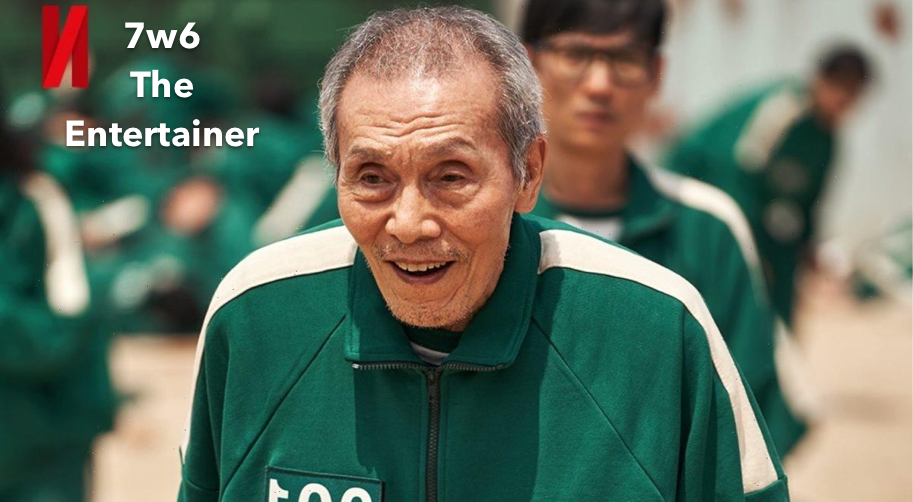
Our best guess for Il-nam is a low-health Seven with a Six wing (the Entertainer): the Entertainer is gregarious, animated, spontaneous, quick-thinking, uninhibited, restless, distractible, nervous, and manic. They are high-energy and optimistic, but can be highly avoidant and chaotic.
Sevens are driven by a desire to have fun and escape negative thoughts. Boredom is a prison for them. Thus it’s fitting that a Seven who’s grown bored with life after amassing immense wealth would engineer a series of games to entertain himself and his colleagues. The Entertainer is named so for a reason: they’re the life of the party, they’re brimming with energy, and they know how to have fun.
=Sevens tend to be natural entrepreneurs, so it’s fitting that Il-Nam succeeded to such a degree with his money-lending business. It’s also an industry that requires a certain level of emotional resilience, given that most lenders end up having to intimidate debt-holders who can’t or won’t repay. Sevens may rationalize their behavior (“it’s just business”) or have others do their dirty work for them.
Entertainers can be childish and self-interested in low health, focused only on their enjoyment. Il-nam shaping the games after his own childhood and nostalgic moments is an example of this immaturity: despite the horror on the other players’ faces as they realize they’ll likely die in Red Light, Green Light, Il-Nam is grinning from ear to ear as he plays.
When the other players express their fear or sadness about what’s happening around them, Il-nam often changes the subject to a positive memory he had as a child. Even on his deathbed, Il-nam scarcely talks about his deeper feelings or motivations behind the game; Gi-hun can only get him to open up by participating in one final game (betting on whether a good Samaritan will help the drunk man on the street).
What Enneagram type is Ali Abdul?
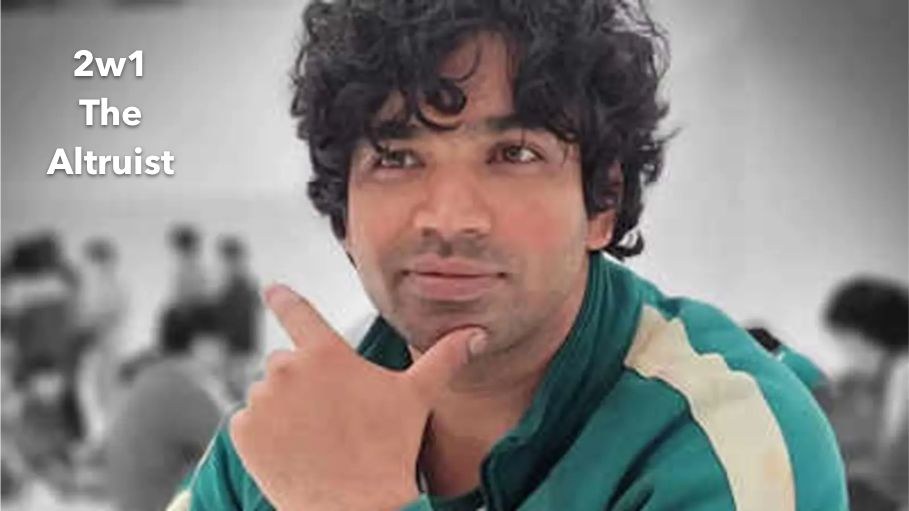
Our best guess for Ali is a Two with a One wing (the Altruist): the Altruist is loving, compassionate, encouraging, devoted, well-intentioned, serving, worrying, guilt-ridden, and passive-aggressive. They are warm-hearted and truly charitable, but can be self-critical and victimized.
Twos need to be needed and love to be loved, often playing “second in command” to a capable leader where they can be helpful and have a clear role. They are relationship-driven people who see the world in terms of their personal connections. Ali’s willingness to help Gi-hun in Red Light, Green Light, without even knowing him, shows the altruistic nature of the Two. It pays off for Ali, who’s an obvious addition to the team that Gi-hun builds.
Twos’ other-focused orientation may lead them to be overly optimistic, or even naive. Ali’s relationship with Sang-woo progresses throughout the show, with Ali providing support to Sang-woo’s leadership role in the beginning and the two finally reaching a brother-like status. It’s because of this status that Ali trusts Sang-woo in the Marble game. Ali was about to win, but rather than push for his own needs (something that Twos tend to struggle with), he fell for Sang-woo’s manipulation.
What Enneagram type is Han Mi-nyeo?
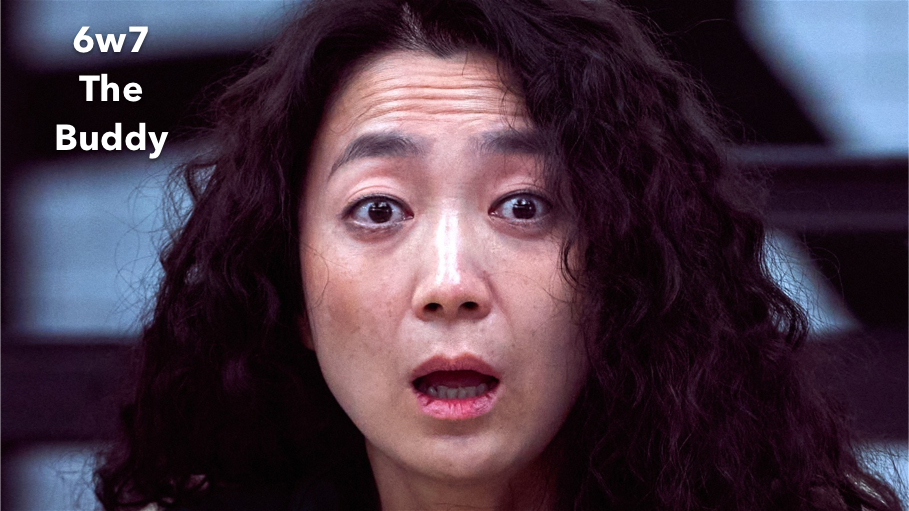
Our best guess for Mi-nyeo is a counterphobic low-health Six with a Seven wing (the Buddy). The Buddy is loyal, playful, affable, responsible, monitoring, cautious, ingratiating, suspicious, and defensive. They are lighthearted community-builders who unite others, but can be panicky and complaining.
Note that we’re putting Mi-Nyeo and Gi-Hun as the same subtype. Even though they act quite differently, their underlying drive seems to be the same: attaining support, guidance, and security. Sixes have a lot of variability in their behavior, wavering between opinions, people, and strategies (and often doubting themselves along the way). Whether they tend to face their fear head on (counterphobic) or run from it (phobic) also plays a large role in how Sixes come across. Mi-nyeo presents as a counterphobic Six in the way she overstates her confidence in a blustery, over-the-top way (“I’m good at everything, except the things I can’t do!”).
Sixes tend to play political games, undermining others and manipulating situations to protect themselves. We see Mi-nyeo do this from the beginning: she sees Deok-su as a strong player and inserts herself into his alliance by playing into his sexual urges. Once they’ve slept together, she demands his allegiance for the rest of the game. She’s also generally unstable, telling frequent lies, refusing to accept blame for her own behavior, and willing to drop allies as soon as she finds better ones—all hallmarks of the low-health Six.
Because loyalty is everything to Sixes, a betrayal of their trust is the worst violation one can do to them. That’s why Mi-nyeo’s focus shifts from winning the game to taking out Deok-su. She’d rather exact revenge on someone who broke her trust than win the money.
What Enneagram type is Ji-yeong?
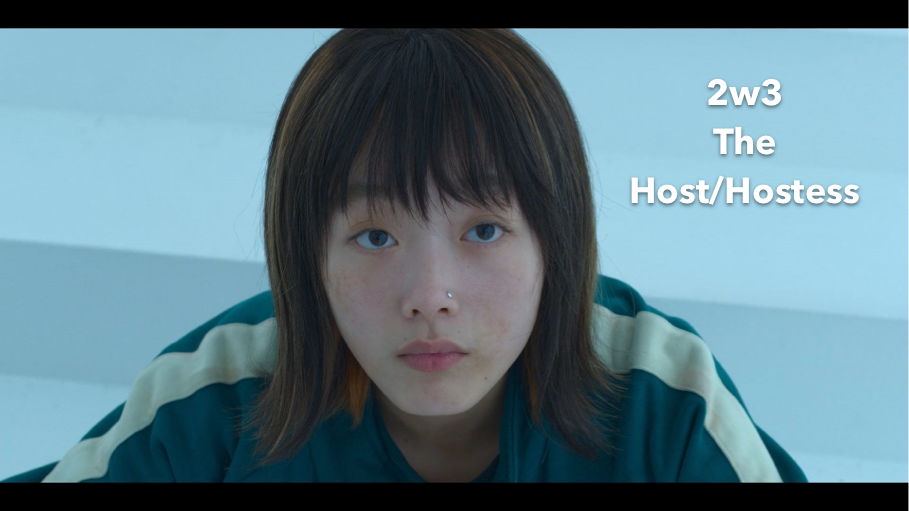
Our best guess for Ji-yeong is a Two with a Three wing (The Host/Hostess): the Host is radiant, sociable, giving, capable, cultivating, flattering, saccharine, intrusive, and manipulative. They are energetic and joyful relationship-builders, but can be attention-seeking and histrionic.
We listed Ali and Ji-yeong as Twos, but with different wings. They are both relationship-driven characters who put others first, but you can see the difference in that the Altruist (Ali) is more principled, composed, and humble than the Hostess (Ji-yeong), who is more charming, self-assured, and warm. While Ali generally contains himself and his emotions throughout the show, Ji-yeong isn’t afraid to get sassy and sarcastic, especially when commenting on the religious player who keeps praying during the games.
Ji-yeong seeks to bond with the reclusive Sae-byeok. Sae-byeok initially sees their pairing as necessary to progress in the games, but Ji-yeong works along the way to get to know Sae-byeok. She’s persistent in getting the less social character to open up. During a heart-wrenching scene in the Marble game, the two share their life histories that brought them to the game, and Ji-yeong silently concludes that Sae-byeok’s family ties give her more of a reason to live. She sacrifices herself as a result. Twos may engage in martyring behavior, both in low health to gain attention, but also in truly brave ways, as Ji-yeong did here.

